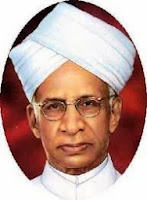The Activities of the English Association for the academic year 2010 - 11, were inaugurated today by Dr.Ms.Deepika Subramanian, Head, Marketing and Training, BEC-India, British Council, Chennai, in the presence of our Principal Dr.Alexandar Jesudasan.
 |
| Dr.Felix Moses speaks |
 |
| Dr.Alexander Jesudasan speaks |
The Principal, in his inaugural address, talked on the importance of the English language in communication today, and emphasized the importance of the BEC Exams for better employability. He noted that, "Our mother tongue is not English but what happens eventually is that, we try to learn English to communicate with people. Neither are we confident in our mother tongue, nor in our target language - English." He said it was amazing to see the extraordinary demand among students, to join a course in BA/MA English Literature over the past few years."
He added that, "The Cambridge Business English Certificate, is being offered by Cambridge University, and that the University is 801 years old. It is the second oldest in England and the seventh oldest in the world. BEC, he said serves to "complement" the student's fundamental knowledge of literature. Today, we are moving into a world where communication is of great importance. Our students are picked up like hot cakes in the job market, for the simple reason that their communication skills are exemplary and it makes sense too. The start of the BEC programme is one more feather in the cap of the Dept of English. To scale up our performance, this BEC is a soliciting exercise. In the past two decades many rural students joined our college without any initiation into communication skills, but soon became masters of communication, and rose up to occupy prestigious posts at the national and at the international level.
 |
| Dr.K.Ganesh speaks |
Dr.K.Ganesh, President of the English Association, then proceeded to introduce the Chief Guest , and also introduced the Chairperson and the Secretary of the Department for this current academic year.
"A few words about the Chief Guest: Ms.Deepika studied at Ethiraj College, and completed an MBA in Strategic Management in the UK and holds a PhD from the US. She has worked in the UK, USA and France for 12 years and returned to India in 2005. At the British Council, she heads Exams - Marketing & Training. Her role involves extensive travel across India, understanding the educational needs across regions. Currently, she manages the largest project, The South East Asia's British Council IELTS Scholarship - 20 scholarships on offer across six countries."
The Chief Guest of the day, Ms.Deepika observed: 'I used to absolutely envy this wonderful place - the environs, professors, students, as i used to be a part of the drama troupe of Prof.Rajani, the legendary theatre personality, and then Professor of English, MCC. Talking about the yawning gap between employability and communication skills, she said that the industry has been trying to bridge this gap. With the growth of the IT sector, the demand has only fuelled the need further. British Council's key project - "Project English" provides quality English language teaching and training, from primary learners to advanced corporate users, which is at the heart of what we do in India and Sri Lanka," she said.
 |
| Chief Guest of the Day Ms.Deepika speaks |









